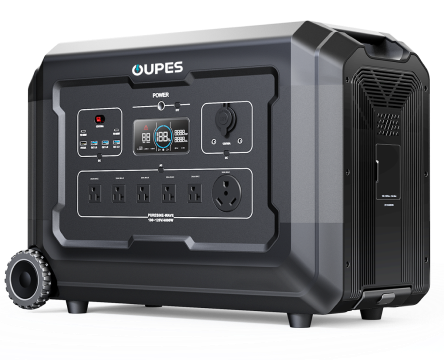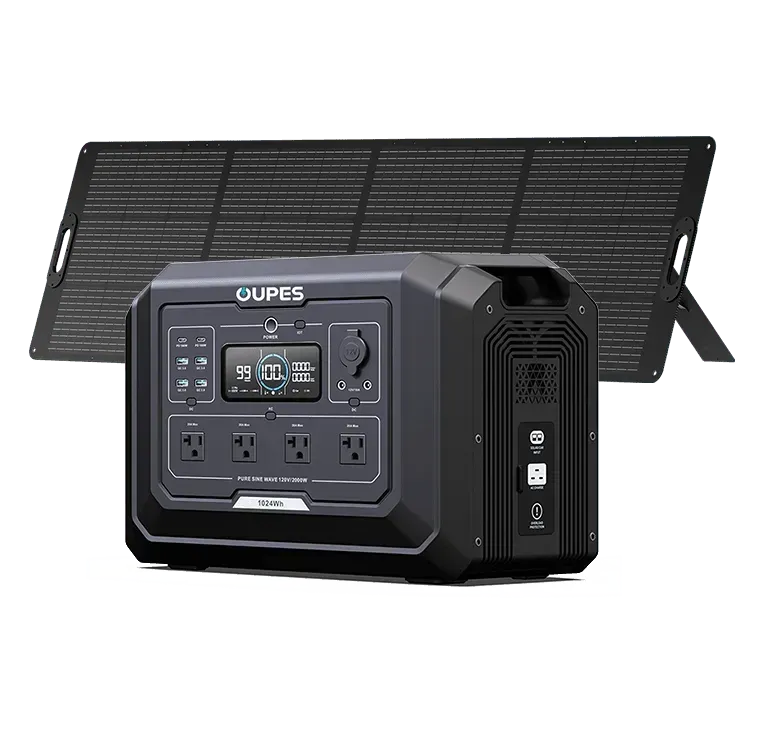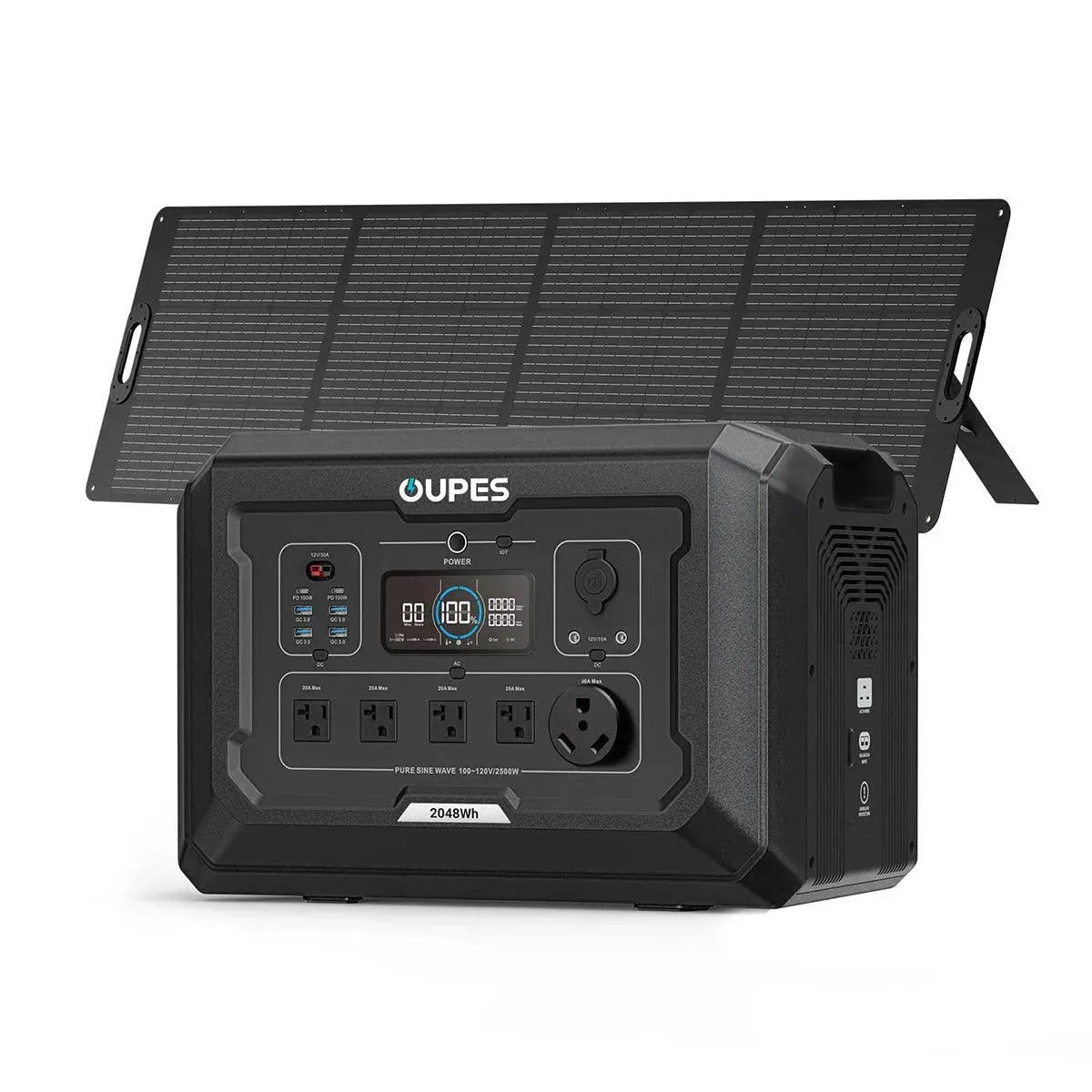
Introduction
Whether you're planning for home backup, camping, or job site use, one major question arises: should you rent or buy a generator? Each option has its advantages depending on your needs, duration of use, and budget. With the rise of clean energy technologies, solar generators and portable power stations also provide a new alternative worth considering. This guide explores both renting and buying options, helping you make a confident, cost-effective choice.
Why Generators Are Essential
Generators provide power independence when the grid fails or when you’re off-grid entirely. They’re essential during:
- Power outages caused by storms or grid issues
- Outdoor activities such as camping, RV travel, or tailgating
- Construction and remote work sites without permanent power
- Emergency backup for medical or essential home equipment
According to the U.S. Energy Information Administration (EIA), the average American experiences at least one power outage lasting more than three hours per year, and this number is increasing due to extreme weather events. Reliable backup power is no longer a luxury—it’s a necessity.
Pros and Cons of Renting a Generator
Renting a generator can be an attractive option if you need temporary power or want to avoid upfront costs. However, it also has limitations you should consider.
Advantages of Renting
- Lower upfront cost: You pay only for the period you need the generator.
- No maintenance responsibilities: The rental company handles servicing, repairs, and storage.
- Flexibility: You can choose the right size and type for each occasion.
- Short-term convenience: Ideal for one-time projects or events.
Disadvantages of Renting
- Recurring costs: Renting multiple times can quickly exceed the cost of ownership.
- Limited availability: During emergencies or disasters, rental units may sell out fast.
- No asset ownership: You build no long-term value from repeated rentals.
- Variable quality: Rental generators may not always be in peak condition or meet your performance needs.
Pros and Cons of Buying a Generator
Purchasing a generator can be a long-term investment in energy security. However, it also involves maintenance and storage responsibilities.
Advantages of Buying
- Always available: You have power whenever you need it—no waiting or scheduling.
- Cost-effective over time: The longer you use it, the lower the cost per use.
- Customization: You can select a model that perfectly fits your power needs.
- Potential resale value: Well-maintained generators can retain decent resale worth.
Disadvantages of Buying
- Higher initial investment: Buying requires a larger upfront expense.
- Maintenance and storage: You must handle upkeep, fuel management, and proper storage.
- Depreciation: Like vehicles, generators lose value over time.
Renting vs. Buying: Side-by-Side Comparison
| Factor | Renting a Generator | Buying a Generator |
|---|---|---|
| Upfront Cost | Low (pay per day or week) | High (purchase price) |
| Long-Term Cost | Expensive if rented often | Cheaper over time with regular use |
| Maintenance | Handled by rental company | Your responsibility |
| Availability | Dependent on stock and demand | Always available to you |
| Best For | Short-term projects, occasional use | Frequent use, long-term reliability |
| Environmental Options | Limited | Can include solar generators or battery systems |
How to Use Solar Energy to Reduce Your Electric Bill
With the growth of renewable technology, solar generators and portable power stations are transforming how people think about off-grid and backup energy. Unlike traditional fuel-based generators, solar systems operate silently, require minimal maintenance, and provide clean energy without emissions.
Benefits of Solar Generators
- Zero fuel cost: Solar energy is free once your system is set up.
- Silent operation: Perfect for homes, RVs, and campsites.
- Low maintenance: No oil changes or fuel storage required.
- Eco-friendly: Reduce carbon footprint while gaining energy independence.
- Long-term savings: Offsetting grid power can lower your monthly utility bill.
Example Calculation
If a solar generator offsets even 200 kWh of your monthly grid usage, at an average rate of $0.17/kWh, you could save roughly **$34 per month**, or **$400+ per year**. For frequent power users, these savings add up quickly.
OUPES Example
For instance, brands like OUPES offer reliable portable solar power stations designed for home backup and outdoor use. While the brand is just one example, it illustrates how modern solar generators can replace or supplement traditional units for everyday applications.
Cost Analysis and Long-Term Value
If you only need power for a few days each year, renting is often more economical. But if you experience frequent outages, travel in your RV often, or rely on power tools off-grid, buying — especially a solar-based solution — makes more sense financially.
A typical rental fee for a medium-sized gas generator is around **$75–$150 per day**, while buying a comparable generator might cost **$800–$2,000**. After roughly 10–15 days of rental, purchasing becomes the better deal.
Key Factors to Consider When Deciding
- Frequency of use: Occasional renters benefit short-term; frequent users save more by owning.
- Power needs: Larger continuous loads (home backup, tools) may justify ownership.
- Budget: Consider total lifetime costs — not just the initial outlay.
- Storage and space: If you lack room or don’t want maintenance, renting might be easier.
- Environmental goals: Solar generators offer sustainable, long-term alternatives.
Practical Recommendations
For short-term needs such as events, weekend camping, or construction projects, renting remains cost-effective and hassle-free. For long-term reliability and preparedness — especially if you value clean energy — investing in a portable solar power station can be a smarter choice. If you’re somewhere in between, consider starting with a smaller solar unit to offset partial power needs before upgrading.
FAQ
1. Is renting a generator cheaper than buying?
For short-term use, yes. However, after several rentals, the cumulative cost often exceeds that of purchasing your own unit.
2. How long do portable power stations last?
High-quality lithium-based solar generators can last 8–10 years or more with regular use and proper care.
3. Are solar generators powerful enough for home backup?
Yes, depending on capacity. Larger units can power refrigerators, medical devices, and small appliances during outages.
4. What maintenance do solar generators require?
Minimal — mainly keeping solar panels clean and ensuring battery storage in moderate temperatures.
5. Is it worth owning both a gas and solar generator?
Some users pair both: gas for long outages and solar for daily charging and quiet operation, ensuring flexibility and cost-efficiency.
6. How can I calculate whether renting or buying makes sense?
Estimate your annual rental days and compare with the purchase price divided by years of use. If break-even is under two years, buying is usually smarter.
7. Does a solar generator work on cloudy days?
Yes, though efficiency drops. You can store power from sunny days to cover cloudy or nighttime use.
8. How can a solar power station help lower my electric bill?
By using stored solar energy during peak hours, you draw less from the grid — effectively reducing your total consumption and monthly bill.




























